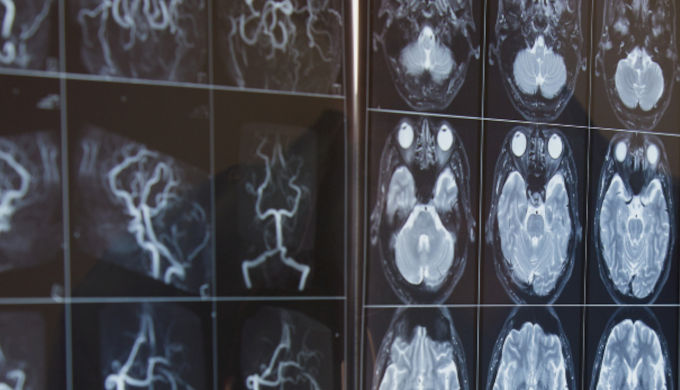Young age reduces MS disability but does not fully protect against it

Progression of multiple sclerosis in the absence of relapses can occur at any age, although it is less common in children than adults with the condition, suggests research.
This independent news story was supported by an educational grant from L’Institut Servier, Suresnes, France.
Cognitive decline continues during gantenerumab therapy for Alzheimer’s disease

Gantenerumab has failed to significantly slow cognitive impairment in people with early Alzheimer’s disease in the GRADUATE I and II trials of the anti-Aβ immunoglobulin G1 antibody.
This independent news story was supported by an educational grant from L’Institut Servier, Suresnes, France.
DOPA decarboxylase: a ‘highly promising’ biomarker for Parkinsonian disorders

DOPA decarboxylase could be an effective biomarker for dopaminergic dysfunction, detecting early and preclinical Lewy body disease and atypical Parkinsonian disorders, say researchers.
This independent news story was supported by an educational grant from L’Institut Servier, Suresnes, France.
Raised neutrophil count linked to amyotrophic lateral sclerosis onset

Increased neutrophil levels may be associated with an increased risk of developing amyotrophic lateral sclerosis, say researchers.
This independent news story was supported by an educational grant from L’Institut Servier, Suresnes, France.
Cortical gyrification a possible early biomarker for PD progression

Researchers have found reductions in cortical gyrifications in patients with newly diagnosed Parkinson’s disease that worsen over time and may therefore serve as a potential biomarker for disease progression.
This independent news story was supported by an educational grant from L’Institut Servier, Suresnes, France.
Pathogenic variants have additive effect on ALS survival

Genetic variants that modify survival in amyotrophic lateral sclerosis (ALS) can act on their own or in unison, having an additive effect and significantly worsening a patient’s outcome, researchers report in the journal Neurology.
This independent news story was supported by an educational grant from L’Institut Servier, Suresnes, France.
α-synuclein seed amplification potential for early Parkinson’s disease diagnosis

An assay for identifying the build-up of the misfolded α-synuclein protein in cerebrospinal fluid could enhance the detection of Parkinson’s disease in the early stages before the onset of motor symptoms, suggests research.
This independent news story was supported by an educational grant from L’Institut Servier, Suresnes, France.
Physical frailty identified as possible target in Parkinson’s disease prevention

Physical frailty may be a risk factor for Parkinson’s disease, particularly in people with a high genetic risk for the condition, suggest study findings published in JAMA Neurology.
This independent news story was supported by an educational grant from L’Institut Servier, Suresnes, France.
Promising results for focused ultrasound ablation in Parkinson’s disease

Focused ultrasound ablation of the globus pallidus internus improved symptoms in a substantial proportion of people with Parkinson’s disease in a randomised trial, but it comes with side effects.
This independent news story was supported by an educational grant from L’Institut Servier, Suresnes, France.
Study sheds light on genetic cause of late-onset cerebellar ataxia

A dominantly inherited, intronic repeat expansion in the fibroblast growth factor 14 gene is associated with late-onset cerebellar ataxia, shows research published in The New England Journal of Medicine.
This independent news story was supported by an educational grant from L’Institut Servier, Suresnes, France.